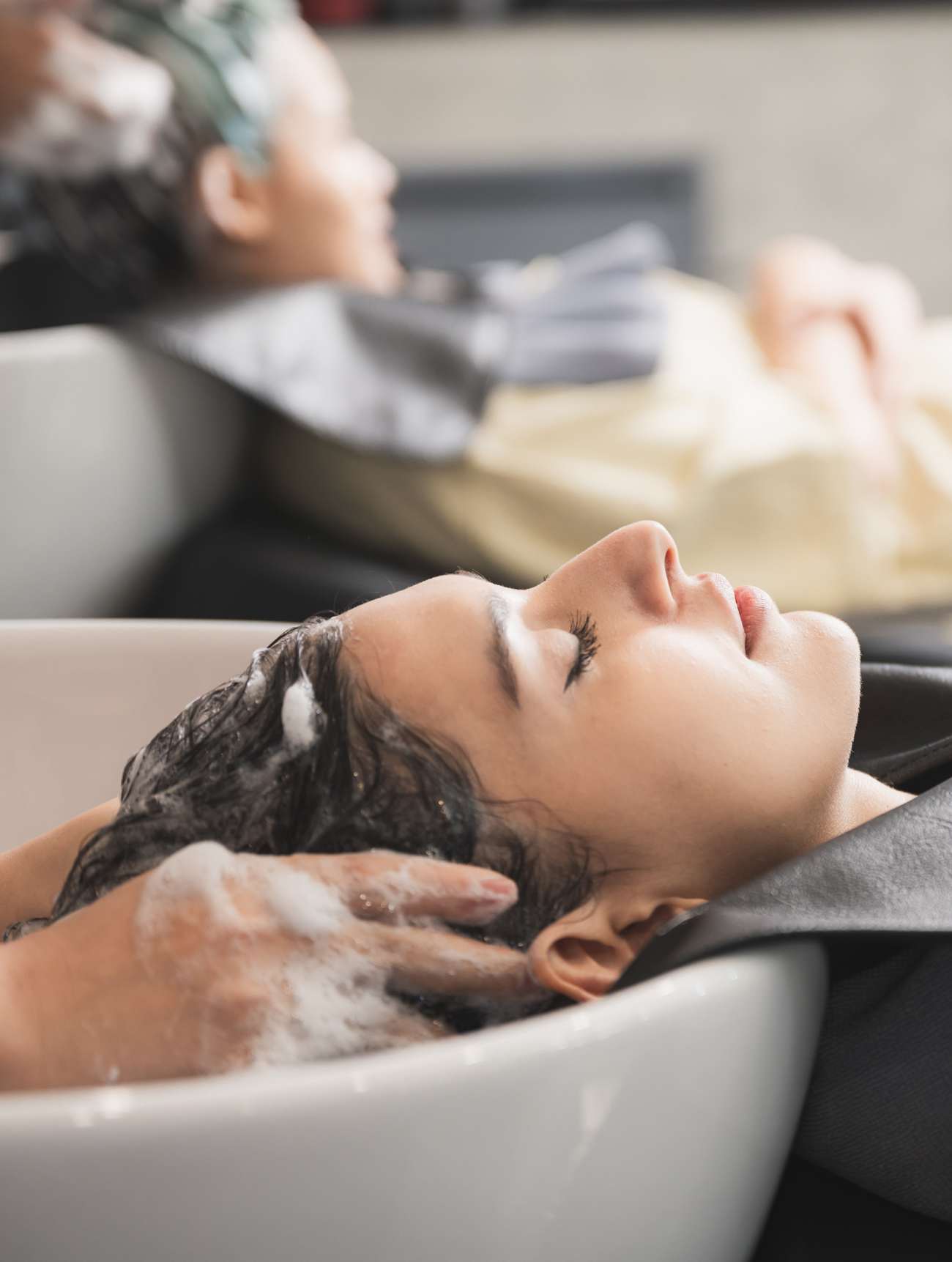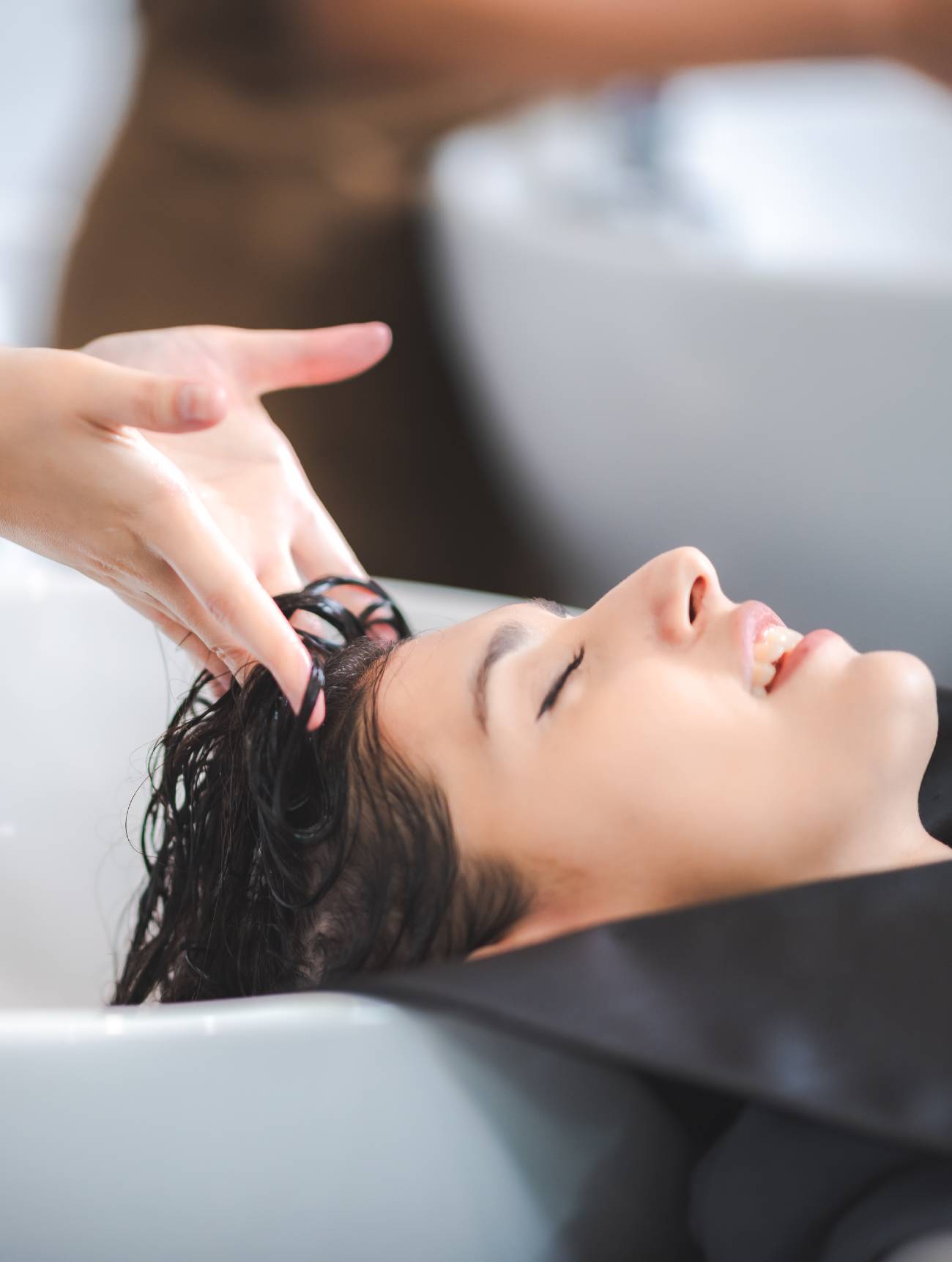

Hair Colour and Health: Vibrant Colours without Damage
Hair colouring is a powerful form of personal expression, allowing you to change your look, highlight your features and even rejuvenate. However, one of the biggest fears clients have when colouring their hair is the risk of damage. This fear is justified, as many colouring processes involve the use of strong chemicals that can weaken the hair and compromise its health.
However, with the right techniques and the right products, it is perfectly possible to achieve vibrant colours without compromising the integrity of the hair. In this article, we’ll explore how colour professionals like Nathalie Charlot manage to achieve stunning results while protecting and nourishing the hair, ensuring that it remains healthy and strong.
Understanding Hair Structure
Before we look at solutions for healthy colouring, it’s important to understand the structure of the hair. Each strand of hair is made up of three main layers:
- Cuticle: The outer layer, made up of overlapping cells that act as protective scales.
- Cortex: The middle layer, where the hair’s natural colour and the proteins that give it strength and elasticity are found.
- Medulla: The innermost layer, which is not always present in all hair types and whose function is still poorly understood.
Colouring processes directly affect these layers, especially the cuticle and cortex. In order for the colour to penetrate the hair, the cuticle must be opened and the pigments deposited in the cortex. If this process is carried out incorrectly, it can cause permanent damage, resulting in fragile, dry and brittle hair.
Healthy Colouring: Techniques and Care
Achieving vibrant colour without damaging your hair involves more than simply applying dye. The careful approach of qualified professionals makes all the difference. Here are some of the main techniques and precautions that should be followed:
Assessing the Condition of the Hair Before any colouring procedure, it is essential to assess the current condition of the hair. If the hair is fragile, has split ends or is excessively dry, the professional should recommend moisturising and repair treatments before proceeding with the colouring. This initial care is essential to ensure that the hair is prepared to withstand the chemical process.
Choosing Quality Products Not all hair colours are created equal. One of the secrets to maintaining healthy hair during colouring is to use high-quality products that contain nourishing and less aggressive ingredients. At Nathalie Charlot’s salon, choosing dyes with advanced formulas that protect the hair is a priority. Some of the best products on the market include:
- Screen Rep 22: A product of excellence that deeply repairs the hair structure during and after the colouring process. Screen Rep 22 helps preserve the integrity of the hair, even in the most aggressive colouring processes, guaranteeing a vibrant and healthy end result.
- Alfaparf Plant Stem Cells: This innovative treatment uses plant cells to restore hair’s vitality and elasticity. Its advanced formula deeply nourishes the hair and is ideal for use in conjunction with colouring, as it protects the hair from chemical damage and ensures long-lasting, vibrant colour.
Intelligent colouring techniques The application of colour can also make a difference to the health of the hair. Techniques such as balayage, in which colour is applied gently and gradually, affect the hair structure less than full colouring or intensive bleaching processes. These techniques allow the hair to rest in areas where colour doesn’t need to be applied, minimising stress on the strands.
Protection during the process During colouring, there are several ways to protect the hair. Products such as heat protectants, anti-chemical barriers and pre-colouring treatments can be applied to form a layer of protection around the hair. These products help reduce the damage caused by the chemicals present in dyes and bleaches. At Nathalie Charlot’s salon, the use of hair protectors during the process is common practice to ensure that the hair remains healthy and nourished.
Products Used at Nathalie Charlot’s Salon
As a colour specialist, Nathalie Charlot knows that the choice of products is crucial to achieving high-quality results without sacrificing the health of the hair. Here are some of the products and brands used in her salon that help protect and nourish the hair during the colouring process:
Screen Rep 22 This product is known for its ability to deeply repair hair during and after the colouring process. Screen Rep 22 acts on the inner layers of the hair, strengthening hair bonds and minimising breakage. Thanks to this advanced technology, hair remains resistant and shiny, even after repeated colouring.
Alfaparf Plant Stem Cells Plant stem cells have been widely used in hair treatments due to their regenerative properties. In the case of this Alfaparf product, plant cells help restore the hair’s natural balance, providing intense nourishment and protection during colouring. Its deep action prevents damage caused by chemicals and ensures that hair maintains a healthy, vibrant appearance.
Alfaparf Shine and Oil Replenishing Ampoules (Semi di Lino) To maximise shine and softness after colouring, Nathalie uses ampoules from Alfaparf’s Semi di Lino range. These ampoules, enriched with nourishing ingredients, restore the hair’s natural shine and replenish the essential oils that can be lost during the colouring process. By using these ampoules at the end of the treatment, your hair will look healthy, silky and with an intense shine.
Post-colouring care
The health of the hair depends not only on the colouring process itself, but also on subsequent care. Maintaining vibrant colour and healthy hair requires a proper post-colouring routine that includes regular hydration and protection. Here are some essential tips for keeping hair nourished and colour lasting after colouring:
Use Specific Shampoos and Conditioners for Coloured Hair
One of the biggest mistakes many people make is not using products suitable for coloured hair. These shampoos and conditioners are formulated to protect colour and prevent premature fading. In addition, they are generally gentler and contain ingredients that help nourish the hair.Deep Hydration
Deep hydration treatments are essential to replenish the moisture lost during colouring. Hair masks rich in oils and proteins should be used at least once a week to keep hair soft and supple.Heat protectants
The heat from hair dryers and curlers can accelerate colour fading and damage hair. That’s why it’s essential to use heat protectants whenever you style your hair with heat tools.Avoid Frequent Washing
Washing your hair too often can remove the scalp’s natural protective layer and accelerate colour fade. Trying to space out washes and using dry shampoo between washes is an excellent strategy for prolonging colour and maintaining hair health.Avoiding Chlorine and Excessive Chemical Products for Those Who Swim in Pools
The chlorine present in swimming pools is extremely aggressive towards coloured hair, as it affects the hair structure and quickly fades the colour. For those who regularly visit swimming pools, the ideal would be to avoid applying chemicals to the hair, such as highlights or bleaching, as these procedures weaken the hair and make it more susceptible to chlorine damage.Protection against salt water
Sea water can accentuate dry hair, as it opens the cuticle and causes the hair to lose its pigmentation more quickly. Those who spend a lot of time at the beach should protect their hair with products that form a barrier against salt or wear caps or hats to minimise exposure to salt water. After exposure to the sea, it is essential to wash your hair with fresh water and use nourishing masks to replenish moisture.Avoid Prolonged Exposure to the Sun
Excessive exposure to the sun also damages the durability of colour, especially vibrant shades. UV radiation can quickly fade coloured hair, leaving it dull and lacklustre. Hair sunscreens and hats are great solutions for protecting hair from the harmful effects of the sun.
Keep Your Hair Healthy and Vibrant with the Right Care
With the right colouring techniques and aftercare, you can keep your hair not only vibrant, but also healthy and nourished for much longer. Visit Nathalie Charlot’s salon for a personalised consultation, where you can receive specific recommendations for your hair type and colour. Give your hair the care it deserves and discover how to transform your look without compromising your hair health!
Book your appointment now and take care of your hair with someone who understands colour and hair health!



